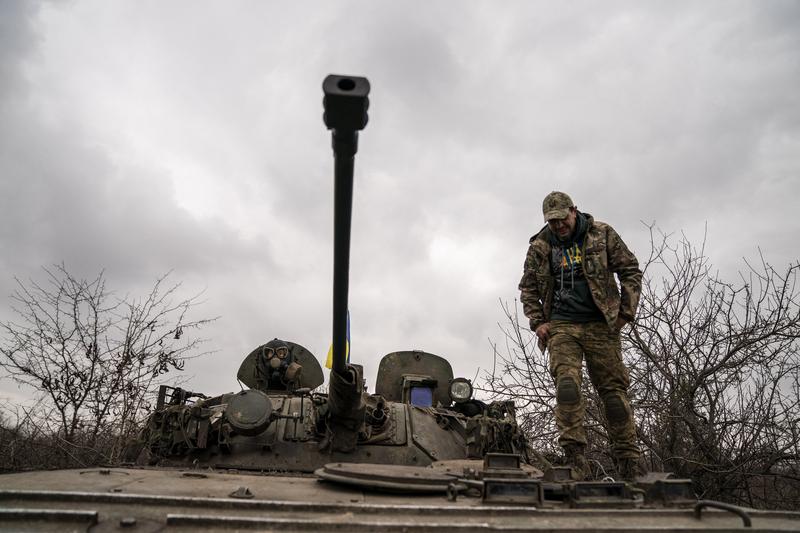No squeaking pigs should be heard across the muddy glens across Romania come this Christmas, the first since the country joined the European Union in January 2007. At least that is what Brussels bureaucrats have requested from a land where tradition demands pigs be slaughter in every rural backyard on the eve of winter holidays. Still, the heirs of a pig farmer famous for his dramatic appearance in a traditionalist novel of long ago promise to stick to their tradition and slaughter the pigs as they've done it for centuries. For such dare, Hungarian farmers were applied heavy EU fines after their European accession in 2004.
Lica Samadau was a pig breeder that appeared in a famous Romanian novel as a harsh man who ruled over a village with an iron hand. That is, until law enforcers of a century ago began hunting him down for his wrongdoings. He eventually had to choose between prison and death - and opted to smash his head against a tree.
His heirs are still living in the village of Mocirla (Romanian word for 'mud'), and they are still breeding pigs. But this year was the first the villagers there were not allowed to chose a pig herder, who was usually picked from among the poor on January 1 of every year and given some food and money to take care of the livestock for the next 12 months.
This time around, as Romania joined the EU, authorities banned the practice. Pigs are no longer to be seen in the meadows and forests near the pond on the village outskirts. These are the European rules. And this is how pig breeder Lica Samadau was killed once again.
Mocirla, the village of literary resonance
Mocirla is a village close to the Western Romania city of Arad. This is where Lica Samadau left with his stock to make a fortune. It is not easy to get there as the roads are muddy, slicing the deserted surroundings under flocks of crows.
On a street banner in the middle of nowhere, a poster depicting a grinning Gigi Becali - the businessman-politician who believed he could make it to the European Parliament in the recent EP elections that took place in Romania, but failed. From the forgotten poster, he tells locals he wants to lead them into the EU. They answer back: move away with your darned Europe.
The local priest's home: Sunday fish is baking while an old woman, Catita Pele, the grand-daughter of Lica Samadau, stays cat on her knees beside the stove.
She doesn't know who invented this new rules on breeding pigs and says they're harmful for the local community.
Bony face, huge hands cut by strong veins, thin lips of a manly cut, Catita Pele throbs at hearing her grandfather's name. "Lica was a brave man. So was I. Or how would I dare leave to Bucharest when I was 14? A worked as a house maid there, I earned some money and bought some and. I and my brother returned home and rebuilt Lica's home, then a ruin as nobody else of his kin was around".
"We've been breeding pigs as long as we've been around. We had stocks of four hundreds, we herded them across the land, just as Lica did with his stock".
"But what would they do with the bigs, now?", old Catita wonders. "I don't know who invented this new stuff, 'cause he did no good. Everything breaks apart!"
There's a pink house in the muddy village. On its porch, a forgetful old lady has a pig for sale. She sells it cheaply - some 600 Romanian lei (less than 200 euro). Unless she manages to sell it to a foreign client, she'd sell it to the guys who come from the city of Arad by car to buy pigs - 4-5 lei per kilo. "Is it expensive? Alas, how much we fed it... It's not worth the effort anymore!"
Slashing throats and boiling blood
Mocirla was thus named long ago, after the muddy pond where pigs used to bathe. It was then renamed Vasile Goldis, after a politician "who had his role in bringing Greater Romania together in 1918 and whose house is now deserted - the yellow one with geese in its gate", as a local says.
Next to it comes the hose of Florea Goldis, the politician's grandson. He has a marked pig and shows us his housuehold, built on pig-breeding business for more than 80 years. He is skeptical: I wouldn't imagine the vet reaching his house to sacrifice the Christmas pig in proper conditions when Christmas comes. A gun? Hoh-hoh!
Shortly before Christmas Eve, locals used to leave a pig running around, squeaking with dread through the yard, hunt him down, slash his throat and leave women collect its blood in a through.
Florea Goldis tells how it all goes. "Some eight-ten men would come at dawn, to have a good sight of it. We'd let the pig in the yard to run around, like it is out in the fields, and the men would make some noise, hunting the pig, pretending they'd not catch it, then slash his throat".
The blood collected in a through would then be boiled, the animal would be burned whole to clean it up, then cut to bits and pieces.
An epoch-old tradition, which the heirs of Lica Samadau promise to stick to from now on despite EU orders. These say that in order to slaughter a pig a vet must come around with a tranquilizer gun, shoot the pig and let it be sacrificed without suffering, in a clean environment.
What now?
Back in 2006, as Romania was preparing for EU accession, authorities in Bucharest issued an order making the new practice compulsory throughout the country. But they failed to prepare the means for that to be possible.
In late November 2007, the National Vet Authority management met with the Veterinary Doctors College to pass the responsibility for applying the new procedures as soon as possible, as Christmas is getting near. They failed to reach an accord. Vets would follow the procedure if they wanted to, but it's not compulsory.
There are some 80 vets In the county of Cluj. We spoke with some, and none was ready and willing to go tranquilizer gun in hand and kill some pigs: in one single morning, at around 7 a.m., some fifty households in one village would like to have their pig slaughtered - all simultaneously.
That would seem rather impossible as an average of six-seven villages come under the supervision of a single vet, Alexandru Duma, head of the top vet authority in Cluj says.
But it doesn't end here. Authorizing butchers under EU rules means having them state their incomes, pay taxes and undergo psychological tests. Butchering pigs is a tradition that nobody has ever paid taxes for in rural Romania. And using tranquilizer guns is at least funny, if not dangerous to think of as the whole slaughtering ceremony includes large amounts of booze as a rule.
The practice is also met extensively in Hungary despite it having to comply with the EU regulations since it joined the EU in 2004. But the country received a hefty fine because of the continuing tradition.
Romanians have a long tradition breeding pigs - some four million bred yearly and fed on the leftovers from rural meals and whatever would not be useful in any other purpose. Pork was the cheapest food to have around when Romanians faced the communist rule and the famines of the first half of the 20th century.
But now Romania has entered the hypermarket era: it's shown by the never ending queues at stores across the country, where pork is sold by the hundred grams, in colorful, clean wrappings. And the taste - what about the taste, when you have such a beautiful wrap?




















